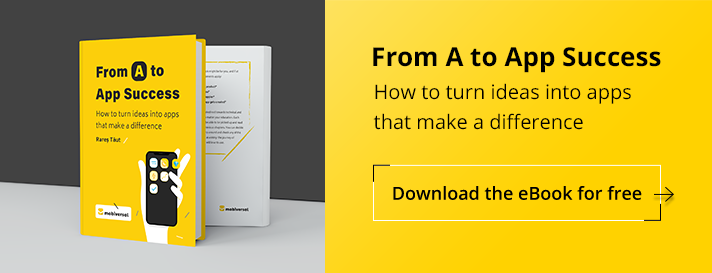The Fallacy of Employees Learning New Knowledge
The business world is constantly filled with challenges! There are numerous confrontations between people, groups of employees and nations that feel, think and act differently. But at the same time, exactly the same people are challenged with common problems which need cooperation in order to resolve them.
Between 2001 and 2006, the English diplomat Jonathan Scheele represented the EU delegation in Romania. Listen how he summed up his Romanian experience: Romania is a country that the more you get to know it better, the less you understand it.
If you’ve ever wondered how we managed to stay, work, and evolve together here at Mobiversal, here are some very important steps that we followed in order to succeed. I hope that you will find them inspiring and practical to use in your team!
We understand culture as a mental programming
What do we mean by this? When a possible employee walks into your company you need to understand that he or she is a unique person, who has unique thinking patterns, feels a certain way and act based on their previous learning! Many of these skills were actually depicted in the early stage in life as a child. Once these patterns are installed in the human mind – software – it becomes harder and harder for the person to quit following them and learn something new. Through an analogy with computer software, we can call these early established patterns a mental soft. Of course, this does not mean that humans are programmed like computers. What we mean is that the mental soft illustrates the most probable reactions and explainable actions of an employee, keeping in mind his past.
But how does someone programme their mental soft? The most important areas from where we take our information and create patterns are our social environments in which we grew up and accumulated life experience. The mental soft starts programming itself in the family at an early stage continues within our close friends circle, school, youth groups, workplace and finally, the community we live in.
Here at Mobiversal we understand that the culture (mental soft) of an employee comes in a twofold way! And we use that to its maximum in order to make the best out of our people! What do we mean by this? Every person is unique and they bring to the table their multiple skills and talents. That is the part of the soft that we love the most! Not even one employee is the same! We nurture and encourage continuous development of those skills and patterns!
But what is the other part of the mental soft? That represents those specific patterns that are blocking the person to improve in their field. This could be: a bad attitude, not being able to cope with stress, emotional and social instability, poor leadership skills, the sensation of being overwhelmed by tasks, etc. And this is perfectly normal! There is no such thing as a perfect employee!
And this is where we kick in. We understand that if computers can be upgraded or receive a new and better soft, then surely a person can be re-patterned in such a way that she/he can become a better version! We use encouragement, positivity, patience, digital skills, influence through leadership and education in the right way so that the employee can perform at its best! Culture is a collective phenomenon and that is why anyone can be re-patterned!
We understand that culture is transformational
If you could use a time machine and go back to your grandparents time you would find the world very changed. There would be no computers and TVs would be brand new devices.
Transforming culture could be just like an onion! It has multiple layers. We can call the layers practices! The practice is the exterior part (visible) of every culture. We can always depict new practices in our life. Think of people over 70 years old learning for the first time how to navigate on the internet, working with symbols and communicating through rituals.
What is important to know is that cultural transformation is slow in the middle of the onion, namely values. As we saw above, these values were depicted while in childhood, from our parents. The cultural layers gained later on in life are usually fast changing. This is the perfect example of an organizational culture in which their members joined at a later moment in life when they were mature. This means basically that is not easy to change that particular business culture. When you hire young people there is the advantage that they can accumulate rapidly and without many obstacles new and interesting skills. They are more keen to change and do not resist culture transformation if the object of their learning is explained clearly and logically.
Culture resembles with a Phoenix bird
During a person’s life, the old cells of the body are permanently replaced with new ones. Did you know that a young man of 20 years does not keep a single cell of which he was born with? Physically, we can affirm that we exist as a mere succession of cell groups. Despite this, we have the same identity because every cell has the same genes.
This is exactly what our company tries to promote internally. Organizations have a remarkable capacity of conserving their distinct culture through generations despite changes. While some changes affect the surfaces, our core layers (the values) remain stable and the culture rises from its own dust, just like the Phoenix bird.




